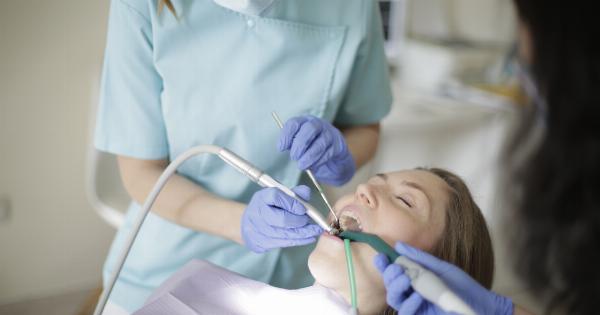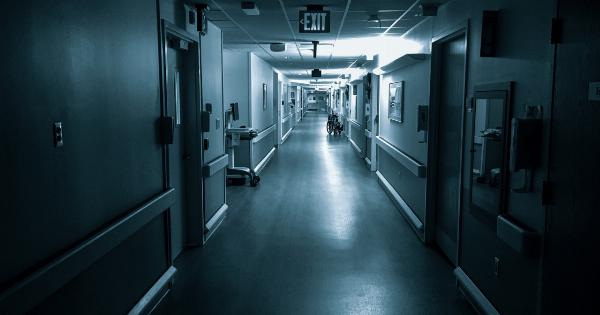Hospitals are integral institutions that are responsible for providing quality healthcare to the public. They cater to patients with various medical conditions including minor illness, infectious diseases, and chronic health conditions.
Upgrading the hospital is a crucial step in improving healthcare services, and it should be taken seriously. In this article, we will discuss why upgrading the hospital matters and why you should care about it.
Improved Patient Care
Hospital upgrades play a huge role in improving patient care. Upgraded hospitals are usually equipped with state-of-the-art medical equipment which makes diagnosis and treatment faster, more accurate, and efficient.
This translates into better health outcomes for patients. Additionally, upgraded hospitals are designed to streamline the patient experience, from admission to discharge, making it seamless and less stressful for patients.
For example, upgraded hospitals may have electronic health records, which make it easier for healthcare providers to access patient data and reduce the risk of medical errors.
Attracting and Retaining Healthcare Professionals
Upgraded hospitals can help attract and retain healthcare professionals. Healthcare professionals are attracted to hospitals with modern facilities and advanced technology.
They tend to provide better care and work in a safer environment that ultimately boosts job satisfaction. When healthcare professionals are satisfied with their work environment, they are likely to stay with the hospital, allowing for stability and continuity in healthcare services.
Boost in Hospital Reputation
Hospital upgrades can boost their reputation. Upgraded hospitals usually deliver better healthcare services to patients, which can result in positive reviews and feedback from patients.
Happy patients are more likely to become repeat customers and are more likely to refer others to the hospital. Word-of-mouth marketing can significantly enhance a hospital’s reputation, making it the hospital of choice for people in a community.
Additionally, the upgraded facility will attract high-quality healthcare professionals, which will only add to the hospital’s excellent reputation.
Meeting Regulatory Requirements
Regulatory authorities have set standards for healthcare providers globally, which must be met. One of these requirements is for hospitals to provide safe, efficient, and high-quality healthcare services.
Upgrading hospitals can help meet regulatory requirements. If a hospital is not meeting regulatory requirements, it can face sanctions, suspension, or loss of license to operate, which can be damaging to its reputation and finances.
Thus, hospitals must ensure that their facilities are always improving to meet regulatory requirements.
Efficient Operations
Hospital upgrades can lead to efficient hospital operations, resulting in improved healthcare service delivery.
For instance, upgrading the hospital’s communication infrastructure, such as a new phone system, faster internet connection, and cellular network coverage, can enhance communication between healthcare professionals, patients, and their family members. This can result in efficient coordination of care, speedy dissemination of critical information, and quick responses to emergencies.
Additionally, hospital upgrades can lead to the development of automated systems designed to streamline administrative processes, such as inventory management or billing processes, which can reduce waste, increase efficiency, and improve patient satisfaction.
Enhanced Patient Safety
Patient safety is paramount in healthcare service delivery. Upgraded hospitals can improve patient safety by providing safe and clean environments, infection control, and minimizing the risk of accidents.
For instance, updated ventilation systems, negative air pressure rooms, and better sanitization procedures can prevent the spread of infectious diseases. Additionally, updated technologies such as robot-assisted surgeries can increase the preciseness of surgeries and decrease the risk of human error.
Investment in the Community
Hospital upgrades require significant investments, which are an investment in the community. Updated hospitals often employ community members and offer sponsorship and support to local schools and charity events.
An upgraded hospital can also attract other businesses into the community, leading to job creation and economic growth. Finally, an upgraded hospital shows that the community cares about its citizens’ health, leading to better health outcomes overall.
Conclusion
In conclusion, upgrading the hospital is a critical investment in the community’s health care services.
It enhances patient safety, boosts efficiency in service delivery, attracts and retains high-quality professionals, and improves the hospital’s reputation. Upgraded hospitals are also better poised to meet regulatory requirements, provide seamless care to patients, and invest in the community. Everyone should care about upgrading the hospital as it offers a better healthcare experience for everyone.






























